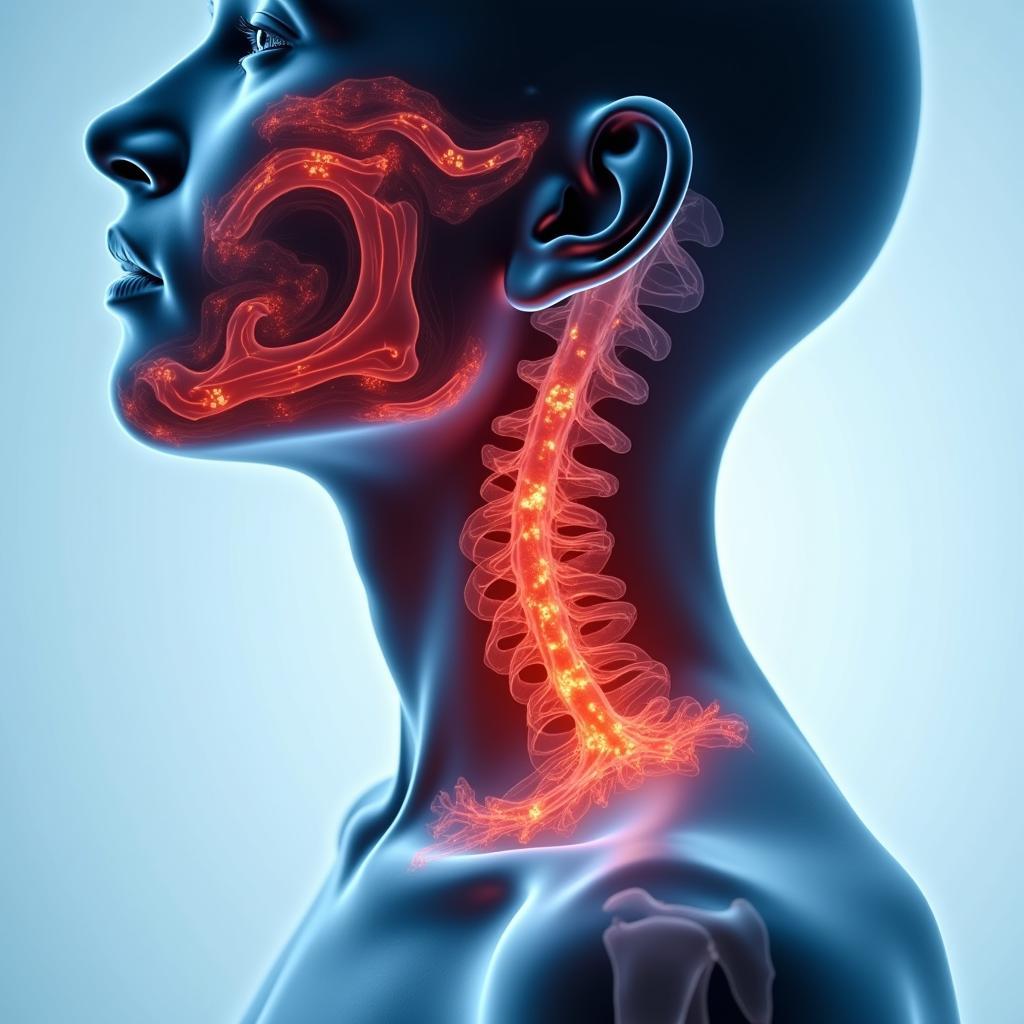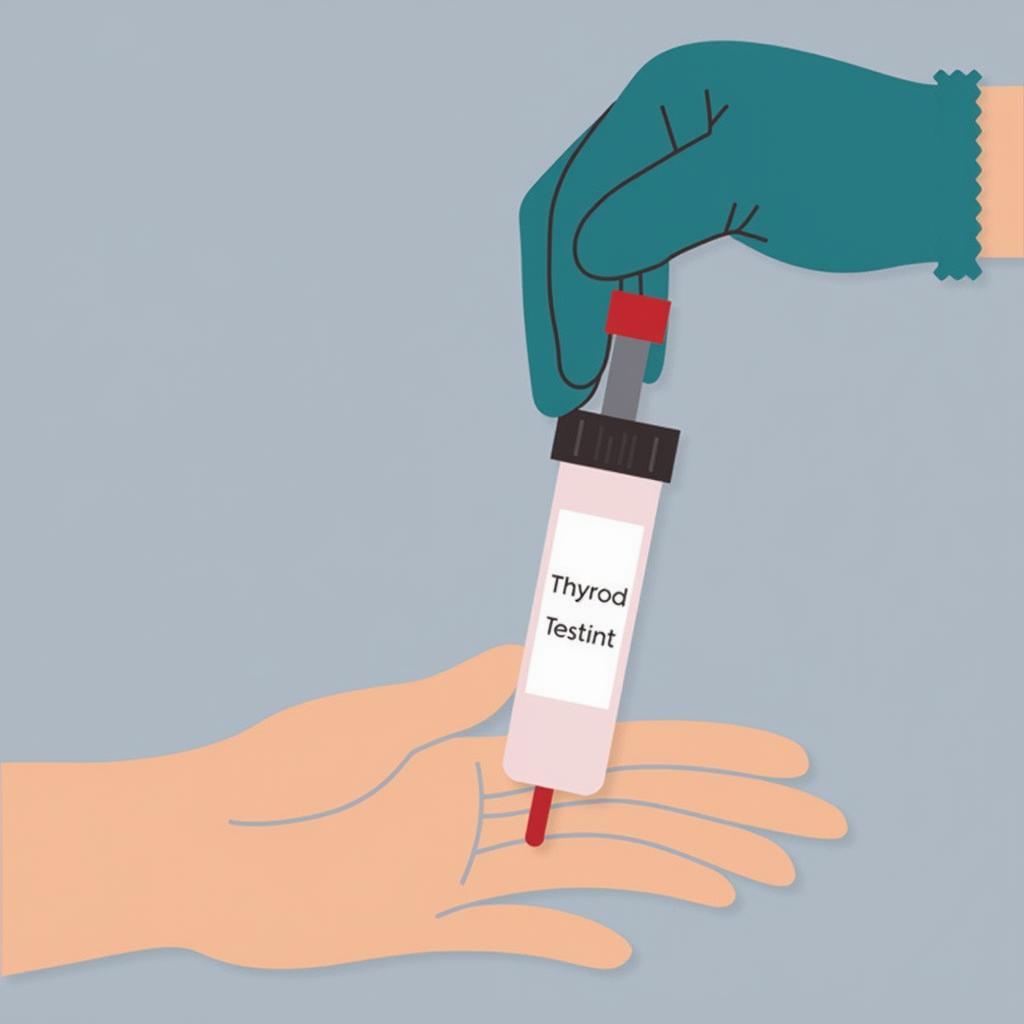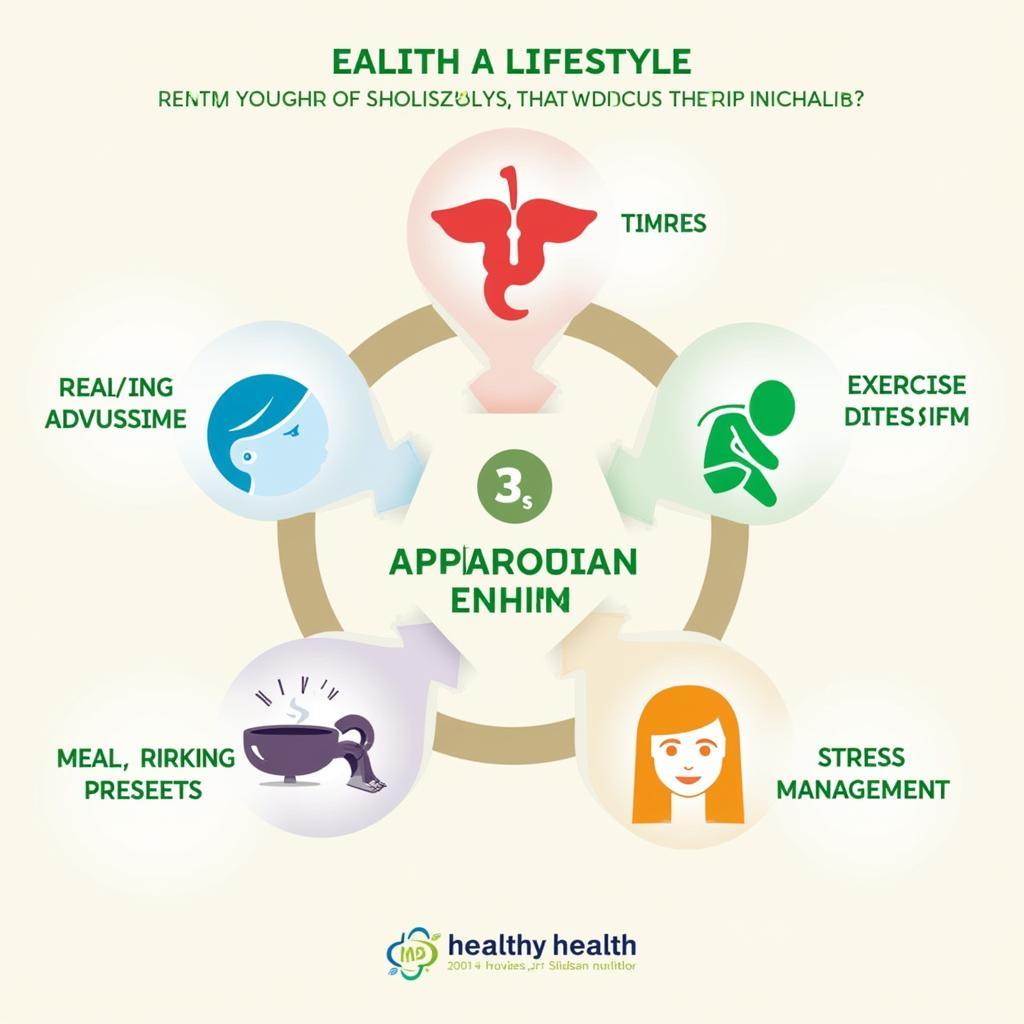Thyroid problems after a car accident can be a hidden consequence of the trauma experienced. While whiplash and broken bones are often immediately apparent, hormonal imbalances like thyroid dysfunction can take weeks or even months to manifest. Understanding this connection is crucial for both patients and medical professionals alike.
The impact of a car accident can extend beyond physical injuries to affect the delicate hormonal balance within the body. The thyroid, a small gland in the neck, plays a vital role in regulating metabolism, energy levels, and overall well-being. A sudden jolt, like that experienced in a collision, can disrupt the thyroid’s function, leading to a cascade of health issues.
Could My Car Accident Cause Thyroid Issues?
Yes, it’s possible. The physical and emotional stress following a car accident can trigger or exacerbate existing thyroid conditions. The sudden release of stress hormones can affect the hypothalamic-pituitary-thyroid (HPT) axis, the intricate system that controls thyroid hormone production.
The trauma experienced during a car accident can also cause inflammation in the thyroid gland itself, known as thyroiditis. This inflammation can lead to either an overproduction or underproduction of thyroid hormones, resulting in hyperthyroidism or hypothyroidism respectively.
 Thyroid Inflammation After Car Accident
Thyroid Inflammation After Car Accident
Recognizing the Symptoms of Thyroid Dysfunction
Recognizing the symptoms of thyroid problems after an accident is vital for early diagnosis and treatment. Symptoms can be subtle and easily mistaken for other conditions, which is why it’s important to be vigilant.
- Hyperthyroidism (Overactive Thyroid): Symptoms may include anxiety, rapid heartbeat, weight loss, tremors, and increased sweating.
- Hypothyroidism (Underactive Thyroid): Symptoms may include fatigue, weight gain, depression, constipation, and dry skin.
If you experience any of these symptoms following a car accident, consult with a medical professional immediately. Early diagnosis and treatment can significantly improve your chances of a full recovery.
Diagnosing and Treating Thyroid Problems After a Car Accident
Diagnosing thyroid problems typically involves blood tests to measure thyroid hormone levels. Your doctor may also perform a physical exam and review your medical history. If thyroid dysfunction is confirmed, treatment options vary depending on the specific condition.
- Hyperthyroidism: Treatments may include medications to block hormone production, radioactive iodine therapy, or surgery to remove part of the thyroid gland.
- Hypothyroidism: Treatment usually involves daily medication to replace the missing thyroid hormone.
 Blood Test for Thyroid Hormone Levels
Blood Test for Thyroid Hormone Levels
“It’s crucial to advocate for your health after an accident,” says Dr. Emily Carter, an endocrinologist with over 20 years of experience. “Don’t hesitate to discuss any unusual symptoms with your doctor, even if they seem unrelated to the accident itself.”
The Importance of Seeking Medical Attention
Seeking medical attention promptly after a car accident is essential, even if you feel fine initially. Many injuries, including thyroid problems, may not manifest immediately. A thorough medical evaluation can help identify potential issues early on.
medical problems after car accident can manifest in various ways, and understanding their potential impact is crucial.
“Early intervention is key to managing thyroid dysfunction,” explains Dr. David Miller, a leading expert in trauma-related endocrine disorders. “The sooner treatment begins, the better the outcome.”
How Whiplash Can Impact Thyroid Function
Whiplash, a common injury after car accidents, can also indirectly contribute to thyroid problems. The forceful back-and-forth motion of the neck can damage the surrounding tissues, potentially affecting the thyroid gland. This damage can lead to inflammation and disrupt the delicate balance of thyroid hormone production. Similar to car accident thyroid problems, whiplash can cause long-term health issues if left untreated.
Living with Thyroid Dysfunction After an Accident
Living with thyroid dysfunction after a car accident can be challenging, but effective management is possible. Working closely with your doctor, following your treatment plan, and making healthy lifestyle choices can significantly improve your quality of life.
Conclusion
Thyroid problems after a car accident can have a significant impact on an individual’s health and well-being. Recognizing the symptoms, seeking prompt medical attention, and following a prescribed treatment plan are crucial for effective management. If you suspect you may have thyroid issues following a car accident, don’t hesitate to contact a medical professional. For support and further information, reach out to AutoTipPro at +1 (641) 206-8880 or visit our office at 500 N St Mary’s St, San Antonio, TX 78205, United States.
 Maintaining Thyroid Health
Maintaining Thyroid Health
FAQ
-
Can a minor car accident cause thyroid problems? Yes, even seemingly minor accidents can cause trauma sufficient to disrupt thyroid function.
-
How long after a car accident can thyroid problems appear? Symptoms can appear weeks or even months after the initial trauma.
-
Are thyroid problems after a car accident permanent? Not necessarily. With proper diagnosis and treatment, many individuals can manage their thyroid dysfunction effectively.
-
What kind of doctor should I see for thyroid problems? An endocrinologist specializes in hormonal disorders, including thyroid problems.
-
Can stress from the accident itself affect my thyroid? Yes, the emotional and physical stress associated with a car accident can significantly impact thyroid function.
-
Are there any natural remedies for thyroid problems? While some lifestyle changes can support thyroid health, it’s essential to consult with a doctor for appropriate medical treatment.
-
Can thyroid problems be misdiagnosed after a car accident? Yes, the symptoms of thyroid dysfunction can be subtle and easily mistaken for other conditions. It’s important to discuss all your symptoms with your doctor.






Leave a Reply